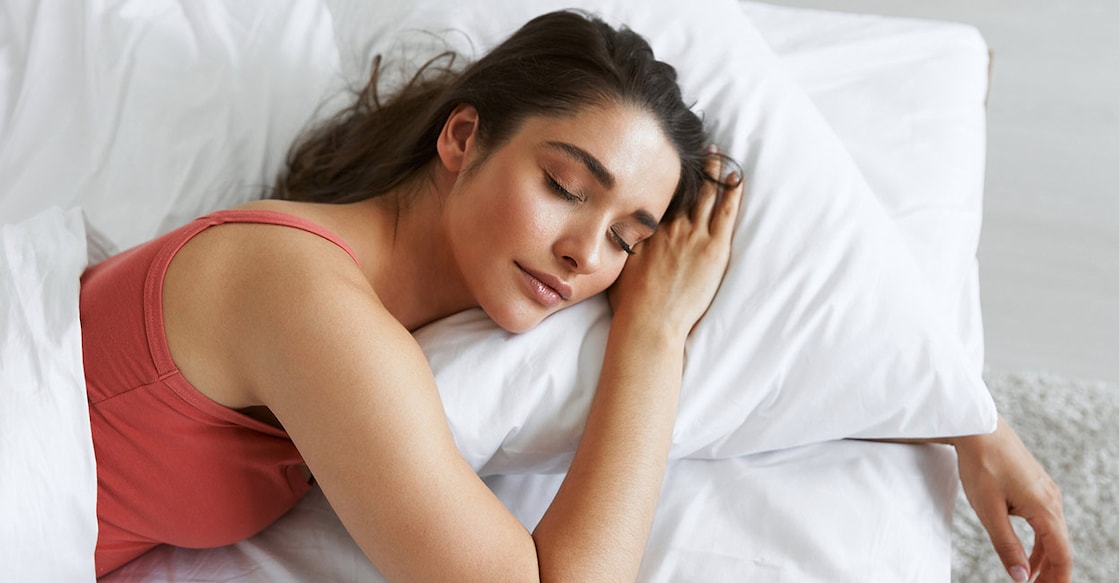Are sleep wrinkles temporary? How to avoid them?

Mail This Article
Have you ever started your day on a dull note, noticing the many wrinkles on your face after a good night's sleep? Sleep wrinkles aka skin creases found on cheeks, foreheads and around the eyes are formed due to repeated pressing of your face against pillows or bed, possibly due to the identical sleep positions for a long period. If you are young, the creases disappear after a few minutes, thanks to the elasticity of your skin. As you get older, this becomes increasingly difficult or even impossible. If you are wondering whether skin wrinkles can be done away with and how here's what you should know.
Are they temporary?
The longevity of sleep wrinkles depends on how you maintain your sleep position consistently over the years. If the same sleep position keeps creating the same wrinkles for many years, they can eventually become part of your face. Also, as we age, our skin loses collagen and elasticity and its ability to bounce back from repeated wrinkling reduces. If your skin is also suffering from a lack of hydration, the effect can be manifold.
How to avoid sleep wrinkles
When you sleep on your side or stomach, your face skin is squeezed and crushed a lot more than if you sleep on your back. When you sleep on your side or stomach, gravity presses your face against the pillow. Your face skin is distorted as your skin is stretched, compressed and pulled in all directions as you move about in your sleep. You can reduce these external forces acting on the face by sleeping on your back or changing positions frequently. Doctors can tell which side you sleep on by looking at your face. The time spent in each sleeping position, the magnitude of external forces applied to each area of the face, as well as the surface area of contact with the pillow surface, also affect the pattern and rate of sleep wrinkle formation. Skin specialists can often recognise this. People who favour sleeping on one side of their body tend to have a flatter face on their sleeping side and more visible sleep lines.
Skincare routine to avoid them
Collagen and elastin are two primary components of the dermis (inner layer) of skin. They form the skin structure and maintain the elasticity of the skin. Supplementing collagen through skincare routines to enhance skin elasticity can help reduce wrinkle formation. Hyaluronic acid is a naturally occurring molecule in human bodies. It holds our skin's collagen and elastin in a proper configuration, stimulates the production of collagen and adds hydration, which can help slow down wrinkle formation. Hyaluronic acid is one of the most common active ingredients in skincare creams, gels and lotions. Moisturisers can hydrate the skin in different ways. Occlusive substances produce a thin layer of oil on the skin that prevents water loss due to evaporation. Humectants attract and hold water in the skin, and they can differ in their capacity to bind with water, which influences the degree of skin hydration.
Do silk pillowcases actually make a difference?
Silk pillowcases can make a difference in wrinkle formation if they let your skin glide and move, rather than adding friction and pressure on a single spot. If you can, use silk sheets and silk pillows. Studies have also shown pillows designed to reduce mechanical stress during sleep can prevent skin deformations. Such a pillow could be useful in slowing down and preventing the formation of certain facial wrinkles. Sleeping on your back can reduce the risk of sleep lines, as can a nighttime routine of moisturising before sleep. Otherwise, lifestyle choices and habits, such as quitting smoking, drinking plenty of water, a healthy diet (eating enough vegetables, fruits, nuts, seeds, healthy fats, yoghurt and other fermented foods) and regular use of sunscreens can help improve the appearance of the skin on our face.
(With PTI inputs)

